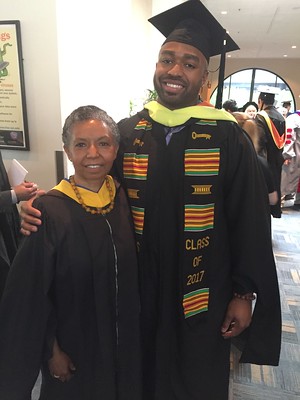 Looking through notes I'd taken in an old work journal - and then looking at blog posts I've written - I can see this ongoing focus on diversifying library science students and library staff. This is something the profession has talked about for a long time and has engaged in focused activities. Sadly, the overall diversity of our LIS programs and library staff is not what we want it to be. Why?
Looking through notes I'd taken in an old work journal - and then looking at blog posts I've written - I can see this ongoing focus on diversifying library science students and library staff. This is something the profession has talked about for a long time and has engaged in focused activities. Sadly, the overall diversity of our LIS programs and library staff is not what we want it to be. Why?
Disclaimer: I need to stop and say that what follows is my point of view. Mine and no one else's.
First, we need to recognize that our public libraries were not originally for the public. They grew out of men's and women's clubs, which were not open to everyone. In addition, we need to remember that public libraries in the U.S. were segregated, meaning that Black people did not have the same access as those who were White. We need to acknowledge that academic institutions were segregated for many years. Historic Black colleges and universities (HBCU) offered LIS degrees, because people of color could not attend White institutions. Yes, now libraries are reportedly for everyone and anyone can hopefully attend any academic institution.
As a side note, here is the original "Library's Bill of Rights" passed by ALA in June 1939. This version says nothing about who can use the library. or if they can use the same materials. The current version of the Bill of Rights includes:
A person’s right to use a library should not be denied or abridged because of origin, age, background, or views.
 Second, to be a professional librarian, you need an accredited master's degree. A student needs to have a bachelor's degree and be accepted to a master's program. Not everyone makes that cut. And the student needs to be able to afford - in money and time - to attend that master's program. Not everyone has the money and not everyone has the time.
Second, to be a professional librarian, you need an accredited master's degree. A student needs to have a bachelor's degree and be accepted to a master's program. Not everyone makes that cut. And the student needs to be able to afford - in money and time - to attend that master's program. Not everyone has the money and not everyone has the time.
2019 information from the National Center for Education Statistics shows that 40% of Black students finish their undergraduate education compared to 64% of White students. This means that fewer Black students are eligible to attend graduate school. How many of them will see LIS as their career choice?
We know that student loan debt adversely affects many students. How many students can afford to take on more debt? Given the salary for librarians, is that debt a good choice?
Are LIS programs prioritizing scholarships to educate those Black, Indigenous, and people of color (BIPOC) who have a bachelor's degree and have decided that they want to become librarians?
There is an important point in there. Are we attracting diverse people to librarianship? Can we find those who have a bachelor's degree and are interested in library science? This is where LIS programs, LIS associations, and others spend their time and efforts. This is where some get frustrated, while others may have some success. This is where being methodical is important, but being methodical requires patience and we're not always patient.
And this is where we'll pick up in Part 2.
Resources
There are many resources on this topic. Below are related posts that I've written. As you can see, this has been important to me for a long time.
- Resources about Racism. Digitization 101. June 2020.
- The Art of Listening. Digitization 101. Feb. 2020.
- #ALAmw20 Day 2: Sustainability, Diversity, Change, and More. Digitization 101. Jan. 2020.
- #ALAac19 : Bias, microaggressions, diversity, and inclusion. Digitization 101. July 2019.
- Totally Off-Topic: Sample Interview Questions – Diversity and Equity. Digitization 101. Feb. 2019.
- #ALISE2018 : A Critical Dialogue: Faculty of Color in Library and Information Science. Digitization 101. Feb. 2018.
- Diversity on Both Sides of the Desk. Online Searcher, 2018, v. 42, n. 2.
- What Color is Your Robot? Digitization 101. Dec. 2016.
- #ALISE2015 : Re-constructing Utopia: How LIS educators and practitioners can dismantle structural racism on the Internet and in the profession. Digitization 101. Jan. 2015
4 comments:
#2 is an excellent point I don't see discussed anywhere near often enough when we talk about diversity in the profession. It's hard to justify the costs of an MLS against the expected salary for librarians unless you're already coming from a place of economic comfort and privilege (I sure was!).
Not all BIPOC people are poor or vice versa, of course. But imagine you're a student from an economically disadvantaged background. Imagine you've beaten the odds, and you have the resources you need to get a graduate degree. Why become a librarian instead of a doctor, lawyer, accountant? We should celebrate those who choose the profession despite all this, but recognize the very rational considerations students have to face.
Our library system changed things recently so that people can become librarians without a master's degree. However, there are few full-time jobs. Even without a MLIS, who can afford to have a part-time job for years and years while waiting for a full-time opening?
Great post. I'd like to add that much of the frustration around librarianship's shortcomings regarding diversifying the profession are centered in (until very recently) a refusal to accept the ways that White supremacy operate on a systemic level within the profession. White supremacy has a vice grip on the field and its effects are so deeply ingrained in recruitment, hiring, and onboarding practices that most White librarians either don't see it or simply refuse to acknowledge it--and their complicity in the continued perpetuation of those practices. Ultimately, although diversity-centered scholarship/mentorship programs in librarianship have existed for a few decades now, they still haven't translated to a more diverse LIS profession. An individual-focused deficit model approach to addressing a lack of diversity cannot fully address a systemic problem. Solutions need to be centered on changing practices on a systemic level so that diverse members of society feel safe and included within libraries--something that you concisely point out was never the intended goal. That is one of the primary reasons why the profession is not on the radar for many undergraduates.
Diversity without equity and inclusion falls short of our stated values. How often are diverse students connecting with a LIS professional that looks like them? If they aren't, does the professional provide them with the same level of service as others? Are libraries being required to qualitatively assess these transactions? Does the library's collections positively reflect their culture and/or intersectional identities? Is the library's website accessible? Libraries are the first point of contact for diverse groups of people, if those initial experiences are unpleasant and/or frustrating, it potentially compounds librarianship's lack of diversity problem.
Very much enjoyed this introduction to the topic, and felt you really hit the mark with that final set of comments about patience and the difficulty of being patient. Seems to me that one potentially fruitful approach involves nurturing the dynamic, often uncomfortable tension between patience and impatience: we need to combine patience with impatience (and vice versa) to reach our goals as quickly as possible. One key element, obviously, is persistence; another is to openly stand with those in need of our support so they understand a) they are not alone and b) have plenty of company in the search to walk thorugh previously closed doors that we are all continuing to attempt to pry open.
Post a Comment